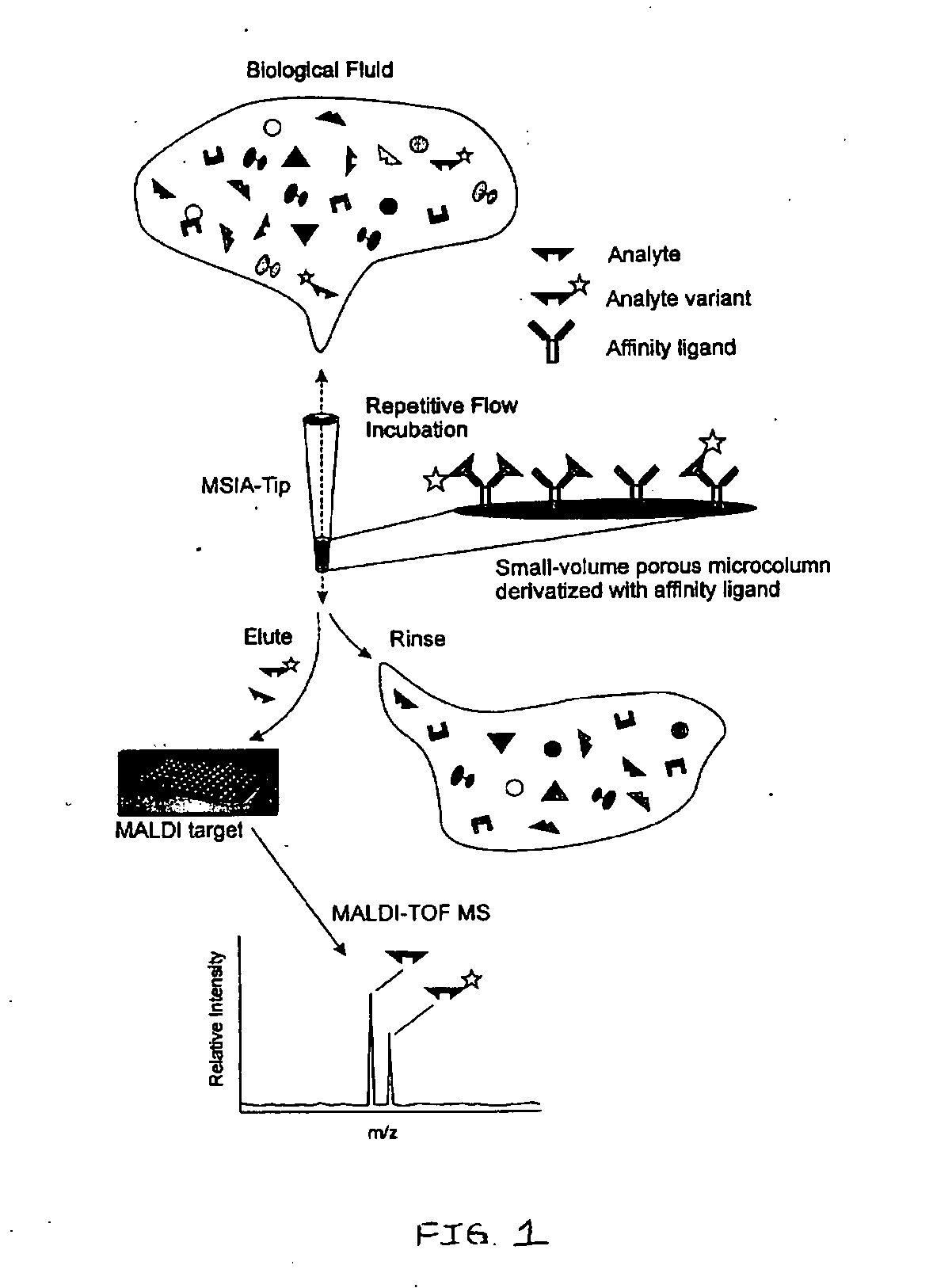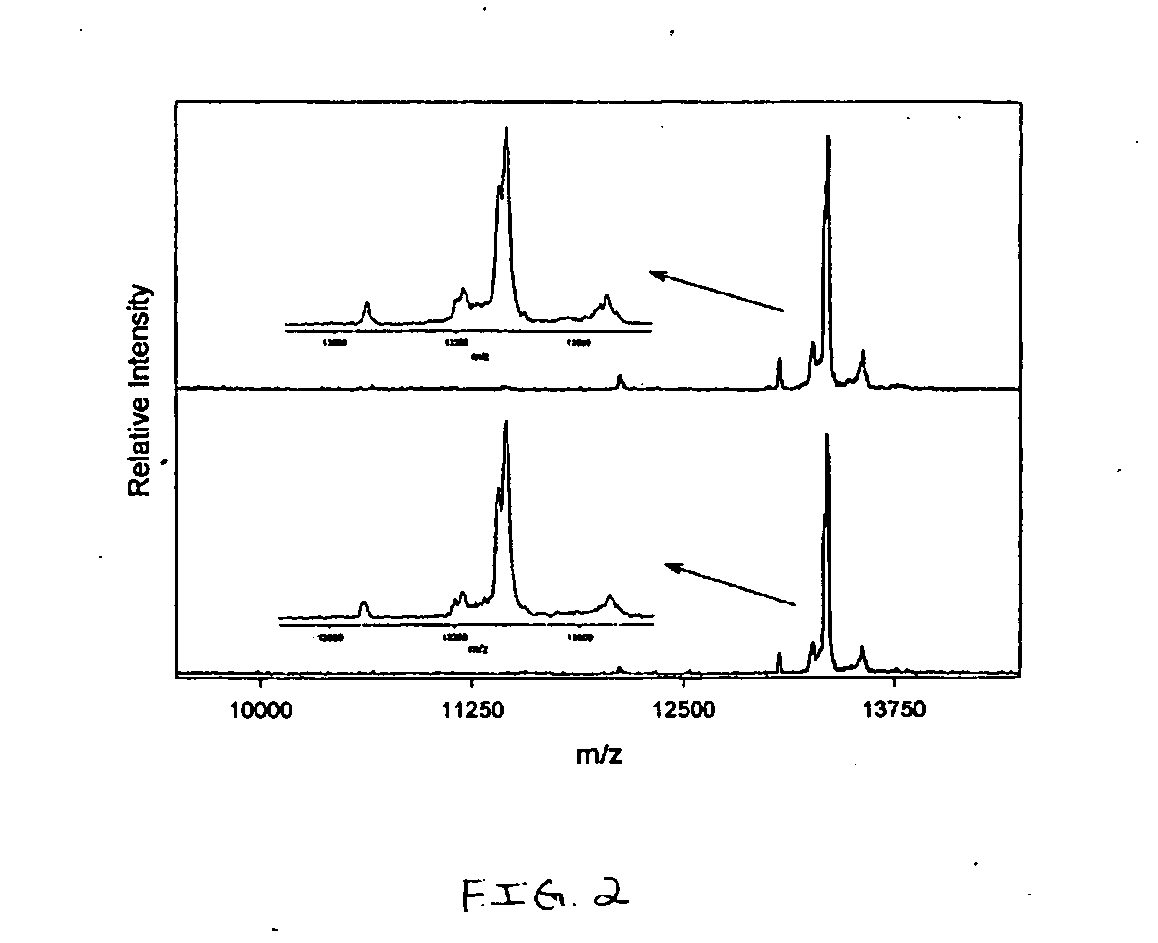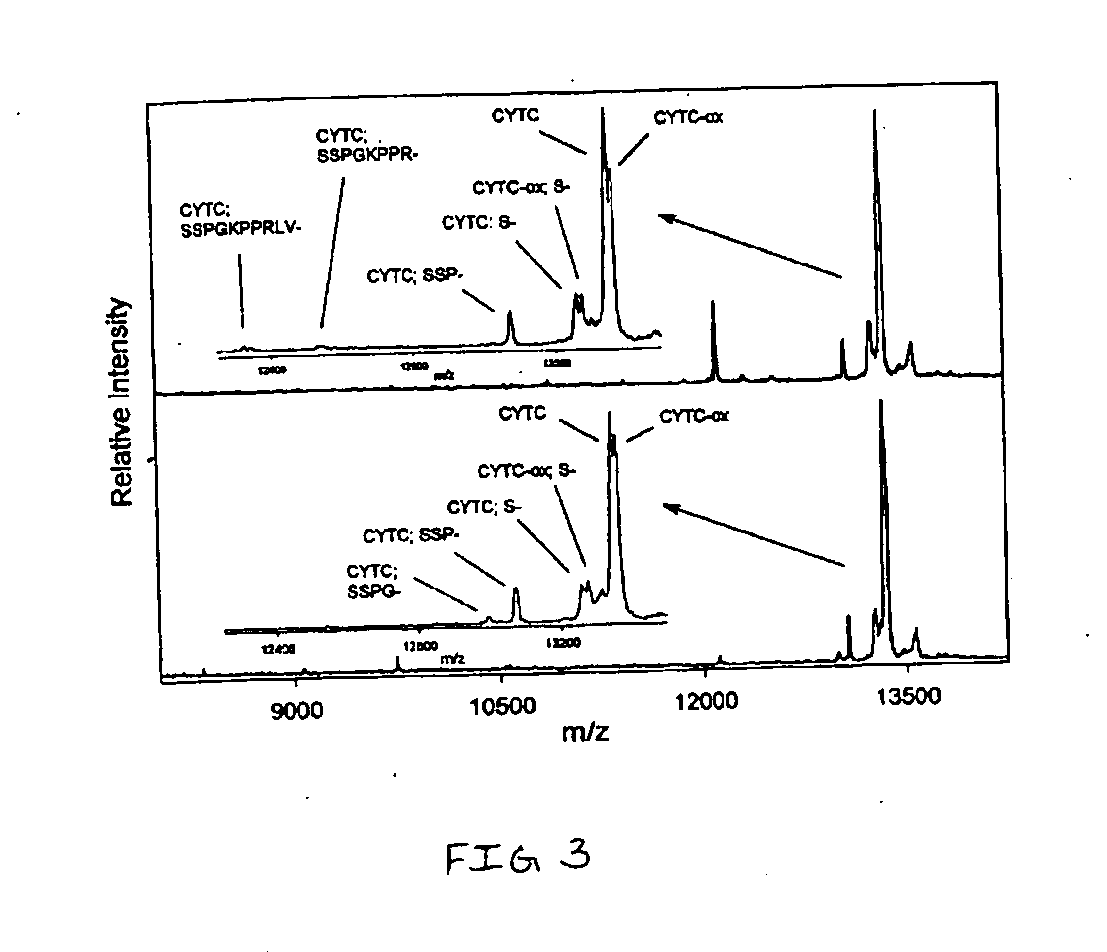Analysis of proteins from biological fluids using mass spectrometric immunoassay
a technology of mass spectrometry and immunoassay, applied in the field of protein analysis from biological fluids using mass spectrometric immunoassay, can solve the problems of insufficient breadth or capacity of approaches such as msia to make a significant impact in the biological sciences, and the inherent challenges of analysis
- Summary
- Abstract
- Description
- Claims
- Application Information
AI Technical Summary
Benefits of technology
Problems solved by technology
Method used
Image
Examples
example 1
General MSIA Method
[0077] The general MSIA approach is shown graphically in FIG. 1. MSIA-Tips, containing porous solid supports covalently derivatized with affinity ligands that are used to extract the specific analytes and their variants from biological samples by repetitively flowing the samples through the MSIA-Tips. Once washed of non-specifically bound compounds, the retained analytes are eluted onto a mass spectrometer target using a MALDI matrix. MALDI-TOF MS then follows, with analytes detected at precise m / z values. The analyses are qualitative by nature but can be made quantitative by incorporating mass-shifted variants of the analyte into the procedure for use as internal standards.
[0078] With regard to the proteins listed in the following Examples, mass spectrometric immunoassays were performed in the following general manner (additional methodologies specific to each protein are addressed in the Examples):
[0079] The MSIA-Tips used in urine and blood analyses were con...
example 2
Cystatin C
[0084] Cystatin C (CYTC) is an extracellular cysteine protease inhibitor that has been indicated as a putative biomarker for a number of inflammatory ailments. CYTC plasma levels can be used reliably as a measure of glomerular filtration rate, which has been linked to renal failure. A cystatin variant caused by a T→A point mutation (replacing leucine with glutamine) is a cause of Icelandic hereditary cystatin C amyloid angiopathy, an autosomal dominant disorder characterized by amyloid deposition of the CYTC variant in almost all tissues. A number of carcinoma cell lines have been reported to secrete CYTC, leading to investigations of its role as a possible tumor marker. In addition, it has been shown that urinary concentration of CYTC is greatly increased in patients with tubular disorders.
[0085] With reference to FIG. 2, a MSIA analysis of cystatin C (CYTC) from human plasma sample was performed. Two healthy individuals were analyzed in the following manner. 50 μL samp...
example 3
[0091] Vitamin D binding protein, VDB (also known as group specific component (Gc) or GC-globulin), is a 52 kDa multifunctional protein found in plasma, urine, and other bodily fluids. The concentration of VDB in plasma is ˜300 μg / L. Over 120 variants of VDB have been identified, with three alleles being dominantly present. VDB has a connotation as a cancer biomarker. Namely, cancerous cells secrete the enzyme alpha-N-acetylgalactosaminidase into the bloodstream, which completely deglycosilates VDB and thus prevents its conversion into the macrophage activating factor (the conversion is achieved by removal of a β-galactose and sialic acid from the VDB trisacharide glycan, leaving N-acetyl-galactosamine (GalNAc) still bound to Asp288). Removal of the residual GalNAc by this enzyme, which was recently found to be exclusively responsible for deglycosylation of VDB, prevents the VDB conversion into the macrophage-activating factor. Since the alpha-N-acetylgalac...
PUM
| Property | Measurement | Unit |
|---|---|---|
| volume | aaaaa | aaaaa |
| pH | aaaaa | aaaaa |
| pH | aaaaa | aaaaa |
Abstract
Description
Claims
Application Information
 Login to View More
Login to View More - R&D
- Intellectual Property
- Life Sciences
- Materials
- Tech Scout
- Unparalleled Data Quality
- Higher Quality Content
- 60% Fewer Hallucinations
Browse by: Latest US Patents, China's latest patents, Technical Efficacy Thesaurus, Application Domain, Technology Topic, Popular Technical Reports.
© 2025 PatSnap. All rights reserved.Legal|Privacy policy|Modern Slavery Act Transparency Statement|Sitemap|About US| Contact US: help@patsnap.com



